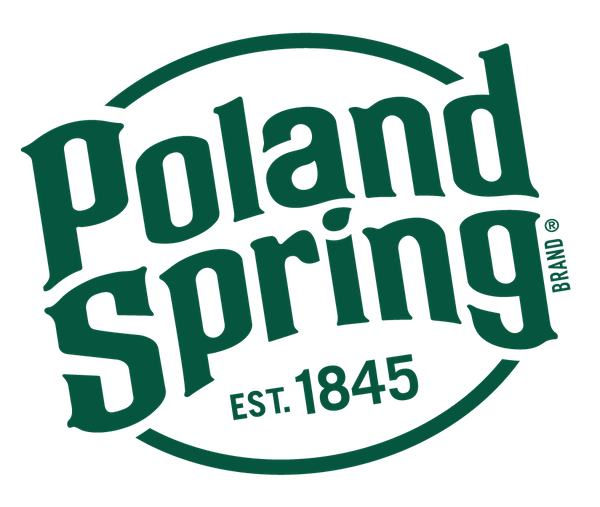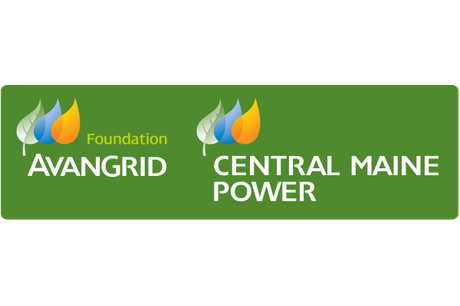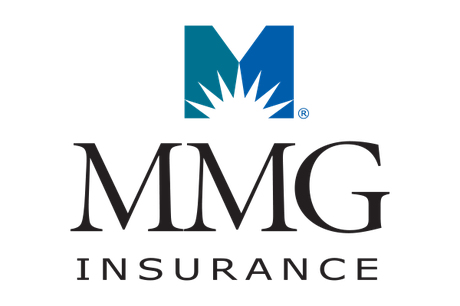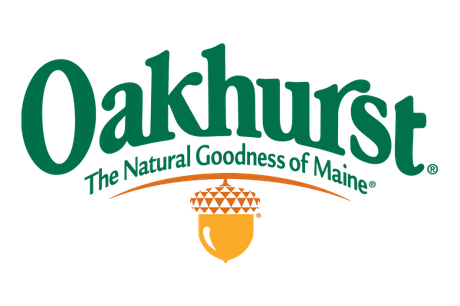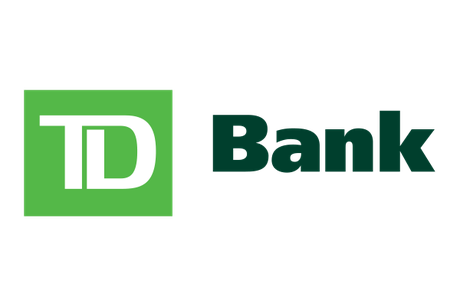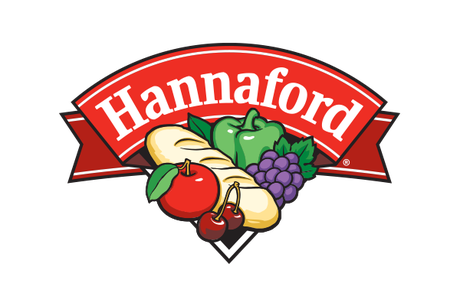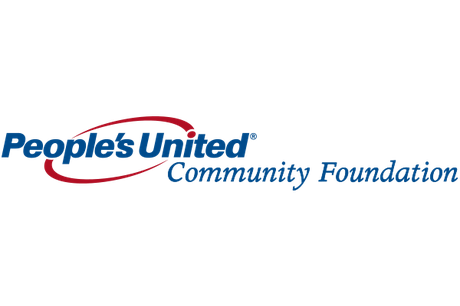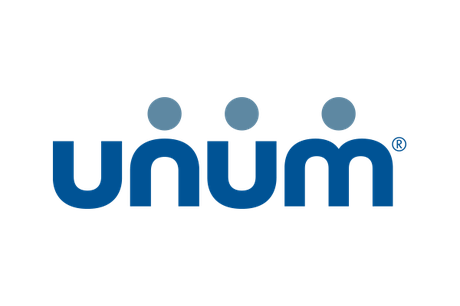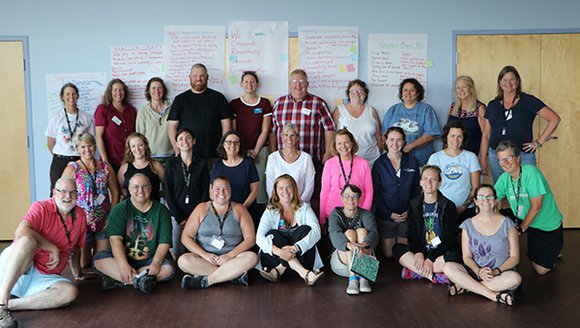2020 LabVenture Annual Impact Report
Reports | Sep 11, 2020
It started as a typical school year for tens of thousands of Maine students and teachers last fall. By March 2020, the global COVID-19 pandemic had transformed the education landscape practically overnight, forcing schools, businesses, and institutions nationwide to close their doors — including GMRI, where we suspended in-person activities like LabVenture, our signature hands-on educational experience for Maine’s middle schoolers. But the pandemic presented us with an unprecedented opportunity to explore learning in virtual environments, where living rooms and kitchens were converted into classrooms and where computer screens and webcams replaced in-person learning and collaboration. We persevered, along with Maine’s teachers and families, to explore uncharted territory in virtual learning during the spring and summer. Whether face-to-face or online, over the course of the school year we engaged students in deep and authentic scientific inquiry to uncover new knowledge about a changing Gulf of Maine ecosystem, while gaining valuable insights about how to best serve students and teachers during an incredibly challenging time.
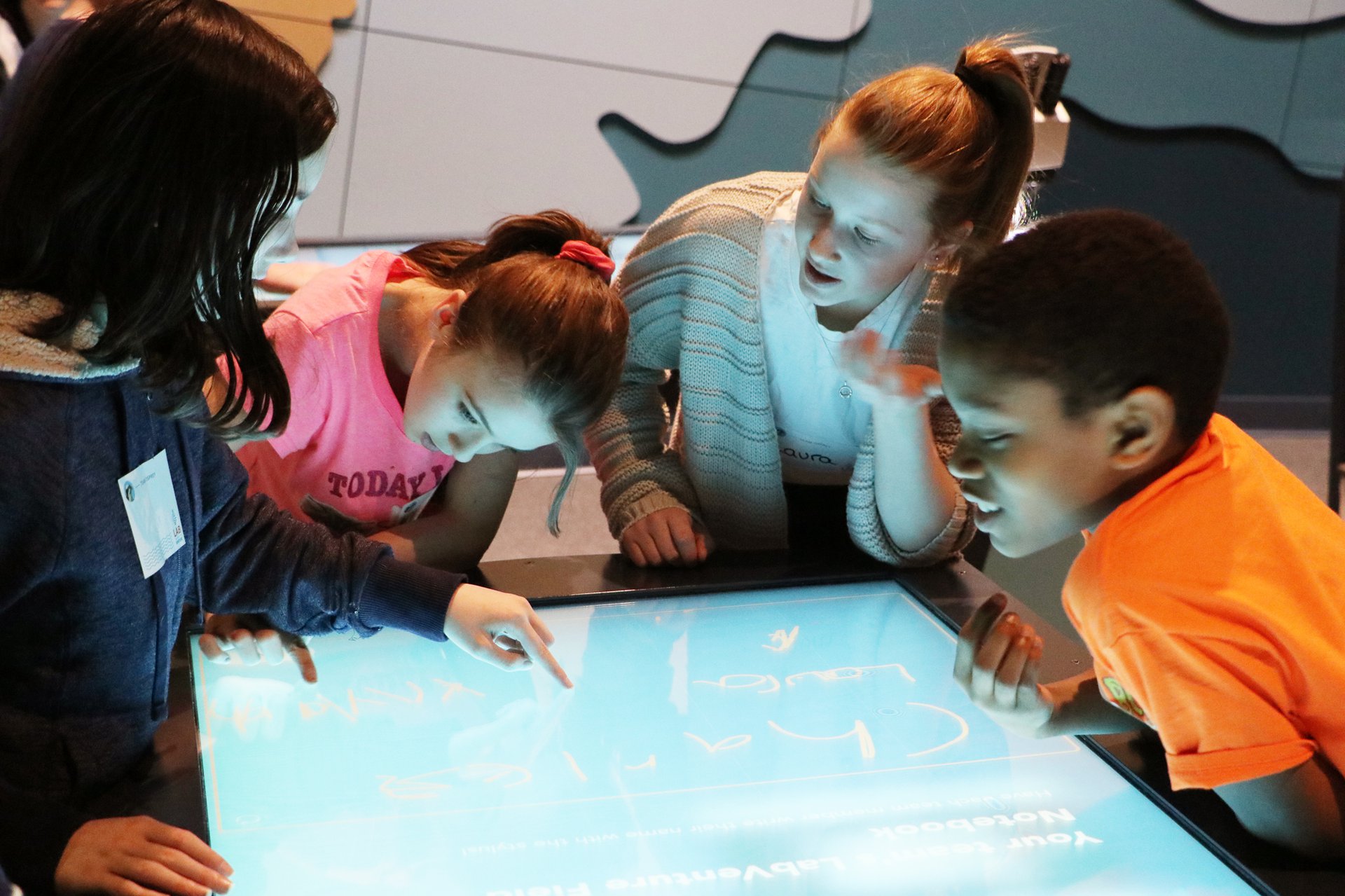
Inspiring Students, Wherever Learning Takes Place
In September 2019, we launched a new school year and welcomed back our first group of fifth and sixth grade classrooms to join us for LabVenture, an immersive, hands-on science research experience. Since 2005, students and teachers have traveled to our Cohen Center for Interactive Learning (CCIL), where they are swept up in a real scientific investigation of warming ocean temperatures in the Gulf of Maine. Through a combination of digital touch tables, live animal observation and measurement, and data collection and analysis, students explore how ocean warming is impacting key species, such as lobster and black sea bass. LabVenture puts the tools of science directly into the hands of students, many of whom have never stepped foot inside a working research laboratory before.
A new video series called “Inside LabVenture” gives a first-person view of what the experience is like from the moment students step onto the bus that will take them to GMRI, all the way to ten years later when we hear from a former LabVenture student who shares how it inspired her to pursue a career in the sciences.
Making LabVenture Accessible
This school year, we rolled out key upgrades in the recently renovated CCIL to improve LabVenture’s accessibility. The scale and complexity of the LabVenture experience required deep thinking about the needs of students with visual, hearing, or motor impairments. With the assistance of our original design partner, Upswell, we implemented new features for these users, including a virtual universal keypad, a screen reader, sonification of data, and audio delivery improvements.
By March 13, 2020, we had welcomed 6,506 students and were on track to reach our annual goal of nearly 10,000 students served across the state of Maine — and practically overnight, the pandemic led our organization, as well as businesses, schools, and nonprofits across the state, country, and worldwide, to close our doors and suspend all in-person activities and meetings. Schools scrambled to facilitate remote lessons. Educators, students, our staff, and their families suddenly faced unprecedented obstacles associated with working and learning from home. We quickly developed virtual experiences to ease the burden placed on teachers and to support the continued education of Maine’s students during an exceptionally challenging time.
We created Home Delivery, a menu of virtual programs based on well-known GMRI educational experiences and led by GMRI educators. The menu included LabVenture Express as well as citizen science investigations, Nature Notes (authentic science writing based on our Findings from the Field scientific journal for middle schoolers), and Scientist-To-Go (a stand-alone session featuring GMRI researchers and their work). Home Delivery was offered as an online, five-day series of 45-minute lessons. LabVenture Express utilized the same innovative technology and curriculum used in the CCIL through an online environment. Although students could no longer hold a live lobster or use microscopes to study live plankton, the virtual format engaged them in the same rich and authentic exploration of how warming ocean temperatures are changing the Gulf of Maine through data analysis, interactive games, and group discussion. In total, 32 schools and 1,206 students participated in Home Delivery between our launch in late April and the end of the school year.
We proudly served a total of 7,712 students from all of Maine’s 16 counties through a mix of in-person LabVenture visits to our lab and Home Delivery. That’s over 57% of our target grade cohort.
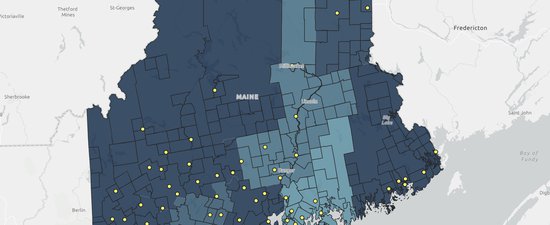
LabVenture Participation, 2019-2020 School Year
View a service map and the full list of counties, towns, and schools served during the 2019-2020 school year.
LabVenture’s Lasting Impact on Students
Our history of providing hands-on, authentic science experiences at the middle school grades through LabVenture closely aligns with national research that suggests early exposure to science, technology, engineering, and math (STEM) has a critical impact on students’ interest and motivation to pursue careers and continued learning in those fields. When learning proves tedious or challenging, what inspires students to forge ahead is the excitement they felt when they made their first scientific discovery or realized that scientists, mathematicians, and computer programmers are inventing the future.
The five-year NASA grant we received in 2015 has allowed us to undertake research on student learning. While this work is still ongoing, preliminary analysis of data collected to date suggests that the combination of LabVenture and accompanying classroom curriculum modules increases students' critical thinking and data literacy skills. We also continue to receive feedback from students that let us know just how much they have learned from and enjoyed their LabVenture experiences.
When we got there it was absolutely beautiful...I think all of our jaws dropped open. There were touch screen tables, a big TV screen, and microscopes. We learned things and had lots of fun! Thank you thank you thank you for this AMAZING experience!
Hallie, 5th grade student
As a result of our shift to virtual learning in the spring, LabVenture Express offered a refreshing and authentic take on science learning for students who were struggling to stay focused and engage in science content from their homes. We were inspired and humbled when we heard positive feedback from participating students:
Even though we couldn’t have an in-person field trip, I think this was just as beneficial and fun...I know I have learned a lot during this experience, and will be able to apply it in the outside world. I love animals and the outdoors, and am definitely considering a career path in animal behavior, biology, etc.
Kris, 6th grade student
Bringing Stability to Teachers During a Tumultuous Time
When the pandemic closed schools in mid-March, teachers were suddenly confronted with a lack of guidance around online learning best practices and resources, as well as low levels of student engagement, all while balancing life at home with their own families. A key goal of LabVenture Express was to ease the immense burden placed on teachers as they adapted and consumed an avalanche of online material. Rather than handing them yet another disconnected resource they needed to review, understand, and incorporate into curriculum on their own, GMRI educators took the reins and provided a full week of interactive learning activities and comprehensive student guides and resources. Teachers were able to use the extra time to prepare other lessons, observe and connect with students in a new way, or simply take a much-needed break.
Over 440 teachers from 141 schools accompanied their students in the LabVenture experience, both in-person and virtually. Beyond the LabVenture visit itself, we provided teachers with rich curricular supports and professional development to bolster ongoing science learning in the classroom. Teachers depend on this lab-away-from-school experience to bring their curriculum to life. A total of 30 teachers participated in two trainings (in August 2019 and January 2020) before we suspended in-person meetings. After the onset of the pandemic, we held a two-day virtual workshop that combined synchronous group activities and discussions with independent, asynchronous work. Our goal was to help familiarize teachers with the classroom modules created through our NASA-funded Real World, Real Science project. These are designed to support teachers and students back in the classroom so they can explore ecosystem changes happening in their own backyards well beyond their experience with LabVenture. An additional 12 teachers joined us for the virtual professional development workshop. Teachers are our most important partners in the quest for statewide STEM and data literacy, and we do all we can to support them in their professional journeys.
Whether in-person or virtually, teachers consistently reported that they love to see their students fully engaged in a unique learning environment where they begin to develop their own questions and ideas for how to address critical issues facing our Gulf of Maine ecosystem:
“What I saw was a high level of engagement and curiosity that was sparked through inquiry-based learning. These results are often difficult to get in the classroom when resources are hard to come by. Being able to see students with varying levels of day-to-day motivation and interest in science working together as teams was gratifying. Students who normally excel in my science class were able to become leaders, while others who typically find science to be intimidating, learned that thinking like a scientist is really just about questioning, observing, and analyzing and where that process can take you.” - Ms. Kelly, Massabesic Middle School
“Our students have been so excited to be learning from other people this week and the experience has boosted our online attendance and engagement tremendously. As teachers, we miss our students more than we ever thought possible, seeing them excited about learning again has brought tears to our eyes more than once… There have been so many moments when we question and rethink our approaches to remote learning, and this week there is no doubt that the lessons are impactful and making a difference. I thank you all for your hard work and for taking this opportunity to figure out new ways to reach students.” - Ms. Ober, Molly Ockett School, LabVenture Express classroom
“Wow, this week was an incredible experience and a real feat that GMRI pulled off to have such an authentic, interactive experience that stays so true to the in-person LabVenture program but done virtually. We are SO grateful!... Also, I know we normally look to sign up for the next year during our yearly visit and I wanted to be sure to throw our name into the hat for a GMRI visit next spring.” - Ms. Chester, Scarborough Middle School, LabVenture Express classroom
A Teacher’s Determination to Reconnect Students with Hands-On Science Content
A science teacher from Van Buren District Secondary School, Laurie Spooner, recalled that students from her school district would attend LabVenture year over year. Although she teaches at the high school level, she always attended and loved engaging with the middle school students from her town, noting the impact it had on their aptitude for science at the high school level. But in the past few years, the school stopped registering new classes due to the long journey from the northern reaches of Maine...and the impact it had on her students was noticeable. She missed the foundation that LabVenture laid out for middle school students, and when they stopped attending she found that she had to catch students upon important science concepts in other ways. She worked with her colleagues at the middle school level to register their classes once again, kicking off a new cycle of students who will benefit from participating in LabVenture.
After their first return visit in the fall of 2019, Laurie shared: “From the moment they stepped on the bus, they were in the midst of new experiences. Some students had not traveled south of Houlton or Bangor. We thought the bus ride home would be quiet as the students had had a long day, but they were too excited about their experience. Students still talk about the experience every time they see me.”
Stories like this remind us how important it is that we work closely with Maine’s devoted teachers to provide authentic science experiences for students, ensuring they are given a strong base for continued science learning, curiosity, and passion.
Looking to the Future
We know that the continuation of remote lessons is highly likely in the new school year, and we will continue to offer virtual experiences and resources, learning each step of the way as we interact with students no matter where their learning takes place. Even after in-person gatherings resume, we anticipate that these virtual lessons will continue to serve Maine’s students well into the future beyond the timeline of the pandemic, offering even more opportunities for schools in the most remote and isolated communities in the state.
We were extremely grateful this school year, both to welcome thousands of students and teachers to our lab and to engage them at home through our adapted virtual programs. Although we cannot replace the hands-on nature of LabVenture in a virtual environment, we were thrilled that LabVenture Express captured the attention and excitement of Maine’s middle schoolers during a time of uncertainty both in school and at home. We will continue to provide an enlightening, motivating, and memorable experience as long as virtual learning continues, and we look forward to the day when we can safely welcome students back to our lab.
Statewide Support
Poland Spring is a statewide partner in delivering LabVenture through their Good Neighbor grant program. Poland Spring supports GMRI to help foster the next generation of water stewards.
- Alfred M. Senter Fund
- Bank of America Charitable Foundation
- Bath Iron Works
- Charles C. Butt
- Harry W. Konkel
- Hyman Family Foundation
- Kennebunk Savings Bank
- Old Bug Light Foundation
- Phineas W. Sprague Memorial Foundation
- Harold Dudley Fund of the Maine Community Foundation
- Seth Sprague Educational and Charitable Foundation
- Edwin S. Webster Foundation
- Sherman Family Foundation
- Norway Savings Bank
- CIANBRO
- Cyr Bus Lines
- Elizabeth Ann Leach Charitable Trust
- Renys
- The Robert & Dorothy Goldberg Charitable Foundation
- Abbott Diagnostics Scarborough
- Bath Savings Institution
- Clark Insurance
- Katahdin Trust Company
- Machias Savings Bank
- Portland Pipe Line
- RBC Wealth Management
- Robert G. & Jane V. Engel Foundation, Inc.
- Saco & Biddeford Savings Institution
- Skowhegan Savings Bank
- Annual giving $10K+ or lifetime giving $35K+
- Annual giving $5K+
- Annual giving < $5K
